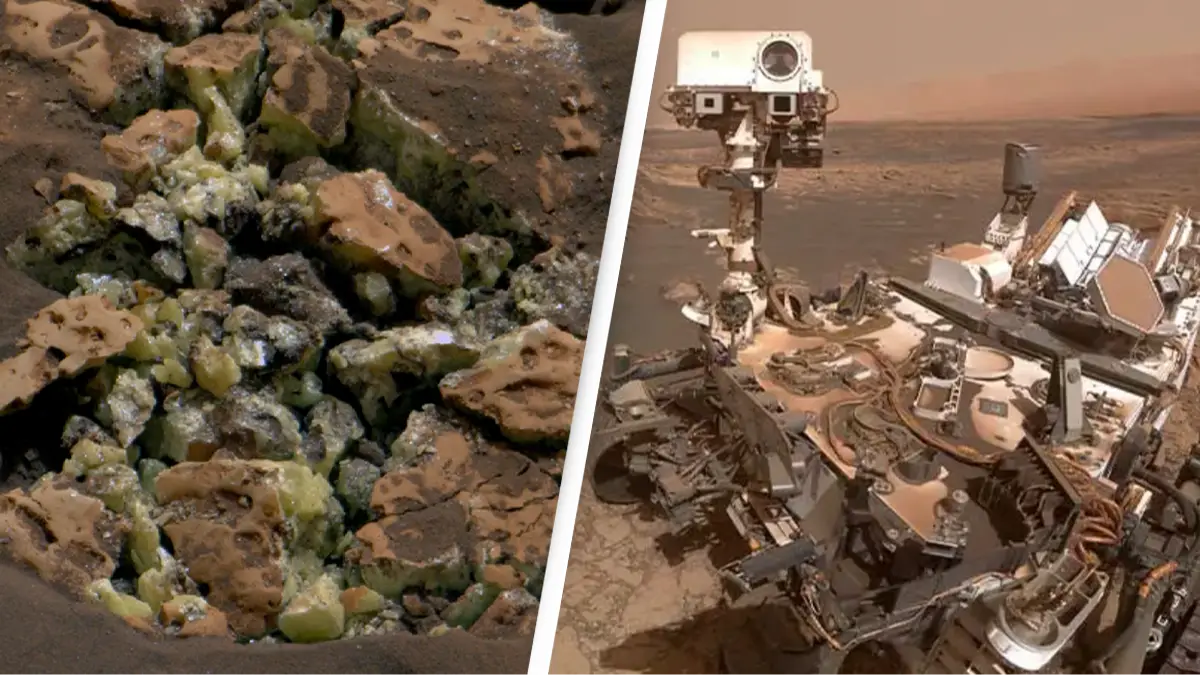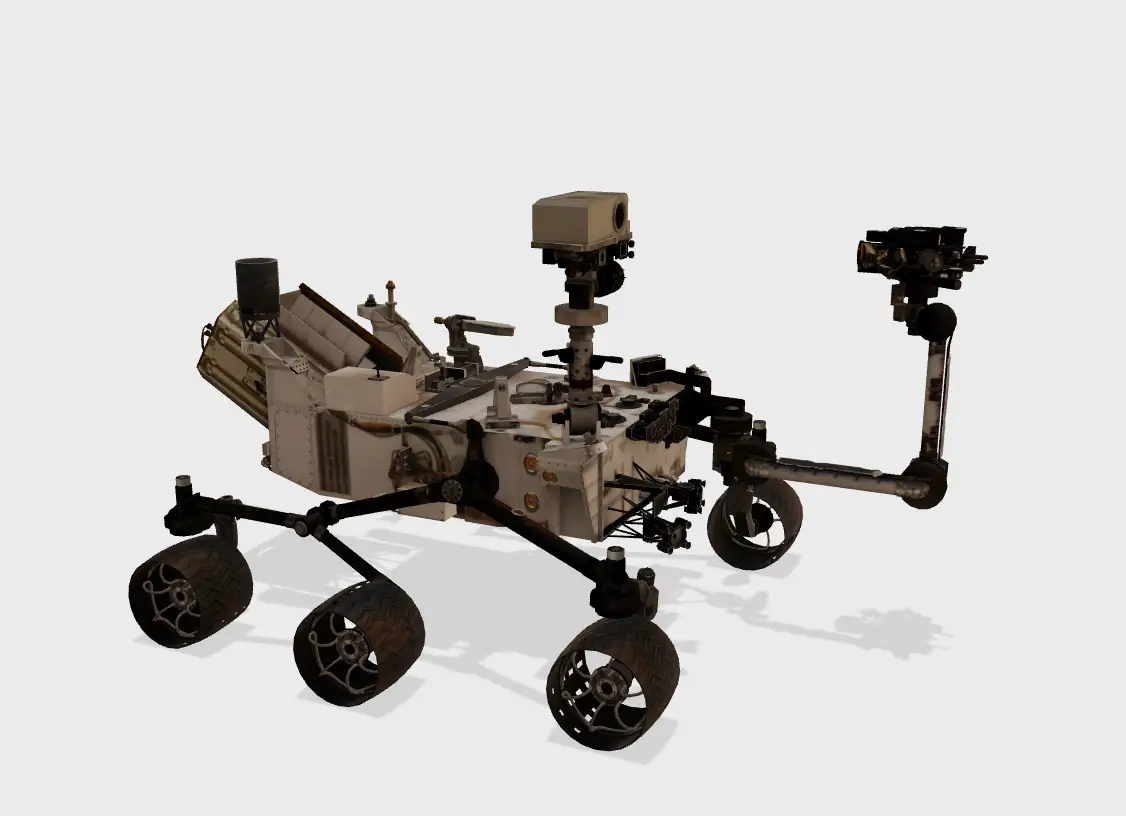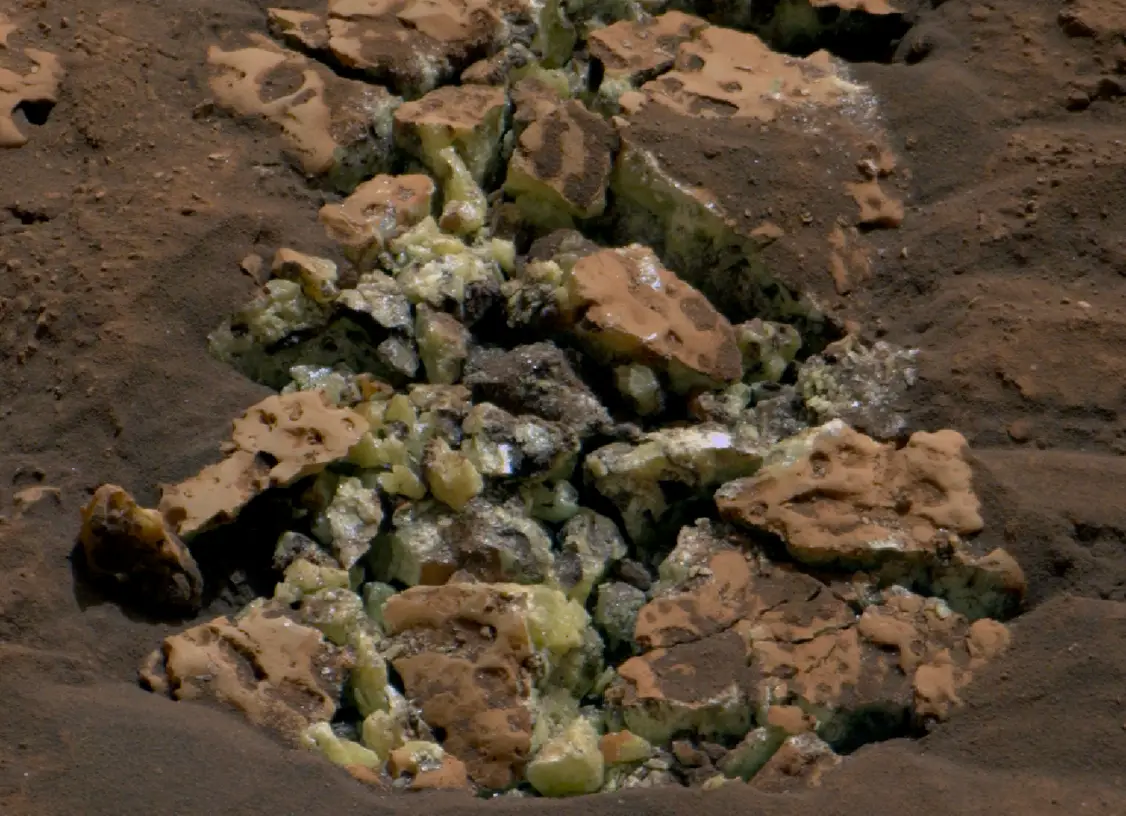
NASA's Curiosity Rover has discovered a 'surprise' substance on Mars which 'shouldn't be there'.
NASA’s rover has been exploring the fourth planet from the Sun since 2012, however, on May 30 it made a particularly 'exciting' discovery which has left scientists scratching their heads.
NASA’s Curiosity Rover first went to Mars in 2012 to explore an area called the Gale Crater - 'a large impact basin with a massive, layered mountain in the middle'. And for the past year or so, NASA's rover has been exploring a 'special region' of the Gale Crater which is 'rich with sulfates' known as the Gediz Vallis - a channel located in the center of the crater, which winds down the slopes of Mount Sharp.
Advert
Scientists have hypothesized that 'billions of years ago, streams, and ponds left behind the minerals as the water dried up' leaving sulfur-based minerals - 'a mix of sulfur and other materials'.
"Assuming the hypothesis is correct, these minerals offer tantalizing clues as to how - and why - the Red Planet’s climate changed from being more Earth-like to the frozen desert it is today," it adds.
Indeed, the Mars rover has already discovered 'a diverse array of rock types and signs of past water,' finding minerals such as magnesium sulfate, calcium sulfate and sodium chloride. However, two months ago, the Mars rover made a remarkable and unexpected discovery while traversing the salty terrain.

In a press release shared earlier this week on 18 July, NASA revealed the Curiosity Rover had found a rock on the planet which is 'made of elemental, or pure, sulfur'.
The inside of the rock was only revealed after the rover drove over it and accidentally cracked it open, revealing yellow sulfur crystals inside.
The rock was then analyzed by the rover using its Mastcam and its composition detected through the use of its robotic arm known as the Alpha Particle X-ray Spectrometer.

NASA explains it 'isn't clear what relationship, if any, the elemental sulfur has to other sulfur-based minerals in the area' and what's more, the rover didn't just find one rock containing pure sulfur, but 'an entire field'.
And given how pure sulfur only forms in 'a narrow range of conditions that scientists haven't associated with the history' of the location the rover was in, the discovery has left them fairly baffled.
While acknowledging there was 'a lot of luck involved' - quite literally - in the rover stumbling upon the rock, Curiosity’s project scientist, Ashwin Vasavada of NASA’s Jet Propulsion Laboratory in Southern California, stated: "Finding a field of stones made of pure sulfur is like finding an oasis in the desert."
Vasavada resolved: "It shouldn’t be there, so now we have to explain it. Discovering strange and unexpected things is what makes planetary exploration so exciting."
Topics: Mars, NASA, Science, Space, Technology